Điểm nhấn
-
 Hội thảo “Thực trạng người Việt Nam hồi hương từ Vương quốc Anh giai đoạn 2014 - 2023”
Hội thảo “Thực trạng người Việt Nam hồi hương từ Vương quốc Anh giai đoạn 2014 - 2023”
-
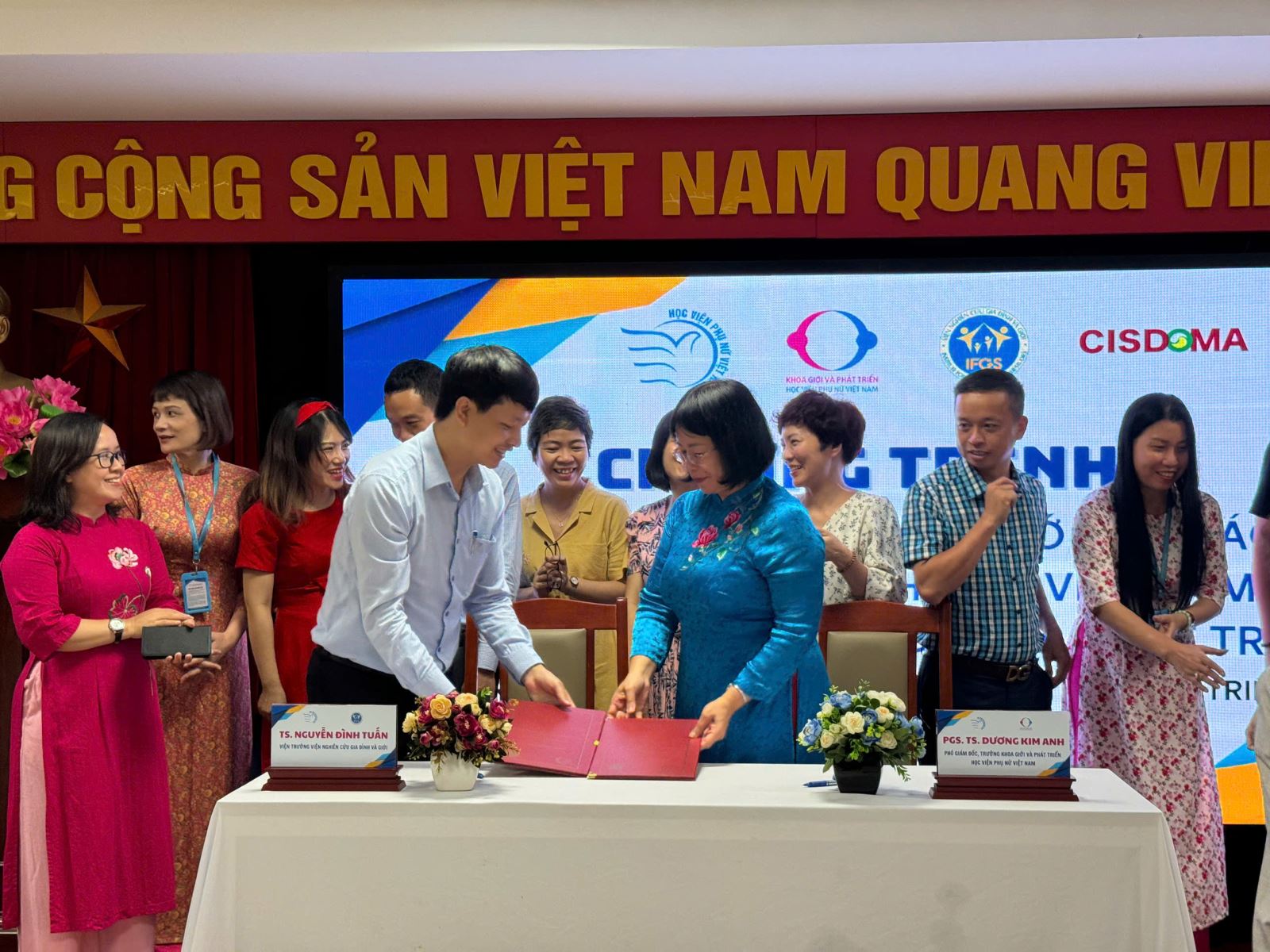 Lễ Ký kết biên bản ghi nhớ hợp tác giữa Học viện Phụ nữ Việt Nam với Viện Nghiên cứu Gia đình và Giới
Lễ Ký kết biên bản ghi nhớ hợp tác giữa Học viện Phụ nữ Việt Nam với Viện Nghiên cứu Gia đình và Giới
-
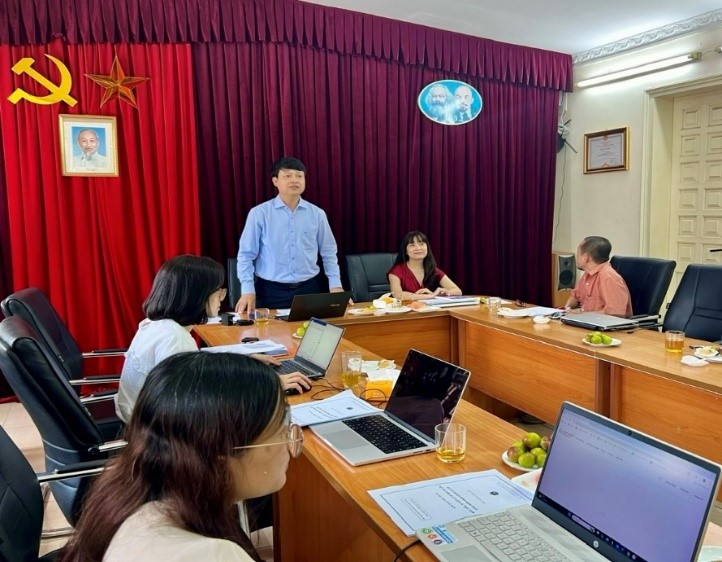 Hội thảo khoa học: "Bộ chỉ số gia đình hạnh phúc: Một số vấn đề lý luận và thực tiễn"
Hội thảo khoa học: "Bộ chỉ số gia đình hạnh phúc: Một số vấn đề lý luận và thực tiễn"
-
 Tọa đàm khoa học "Vận dụng lý thuyết trong nghiên cứu khoa học xã hội"
Tọa đàm khoa học "Vận dụng lý thuyết trong nghiên cứu khoa học xã hội"
-
 Hội nghị Đối thoại giữa Chi ủy, Lãnh đạo viện với đảng viên, viên chức và người lao động Viện nghiên cứu Gia đình và Giới 6 tháng đầu năm 2024
Hội nghị Đối thoại giữa Chi ủy, Lãnh đạo viện với đảng viên, viên chức và người lao động Viện nghiên cứu Gia đình và Giới 6 tháng đầu năm 2024
-
 Chi bộ Viện nghiên cứu Gia đình và Giới tổ chức sinh hoạt chuyên đề: Đoàn kết thống nhất trong Đảng theo tư tưởng Hồ Chí Minh
Chi bộ Viện nghiên cứu Gia đình và Giới tổ chức sinh hoạt chuyên đề: Đoàn kết thống nhất trong Đảng theo tư tưởng Hồ Chí Minh
-
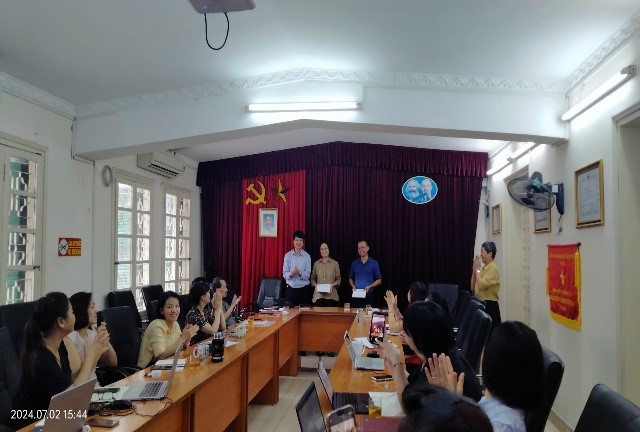 Cuộc thi “Nét đẹp và giá trị gia đình Việt Nam” hưởng ứng Ngày Gia đình Việt Nam 2024
Cuộc thi “Nét đẹp và giá trị gia đình Việt Nam” hưởng ứng Ngày Gia đình Việt Nam 2024
-
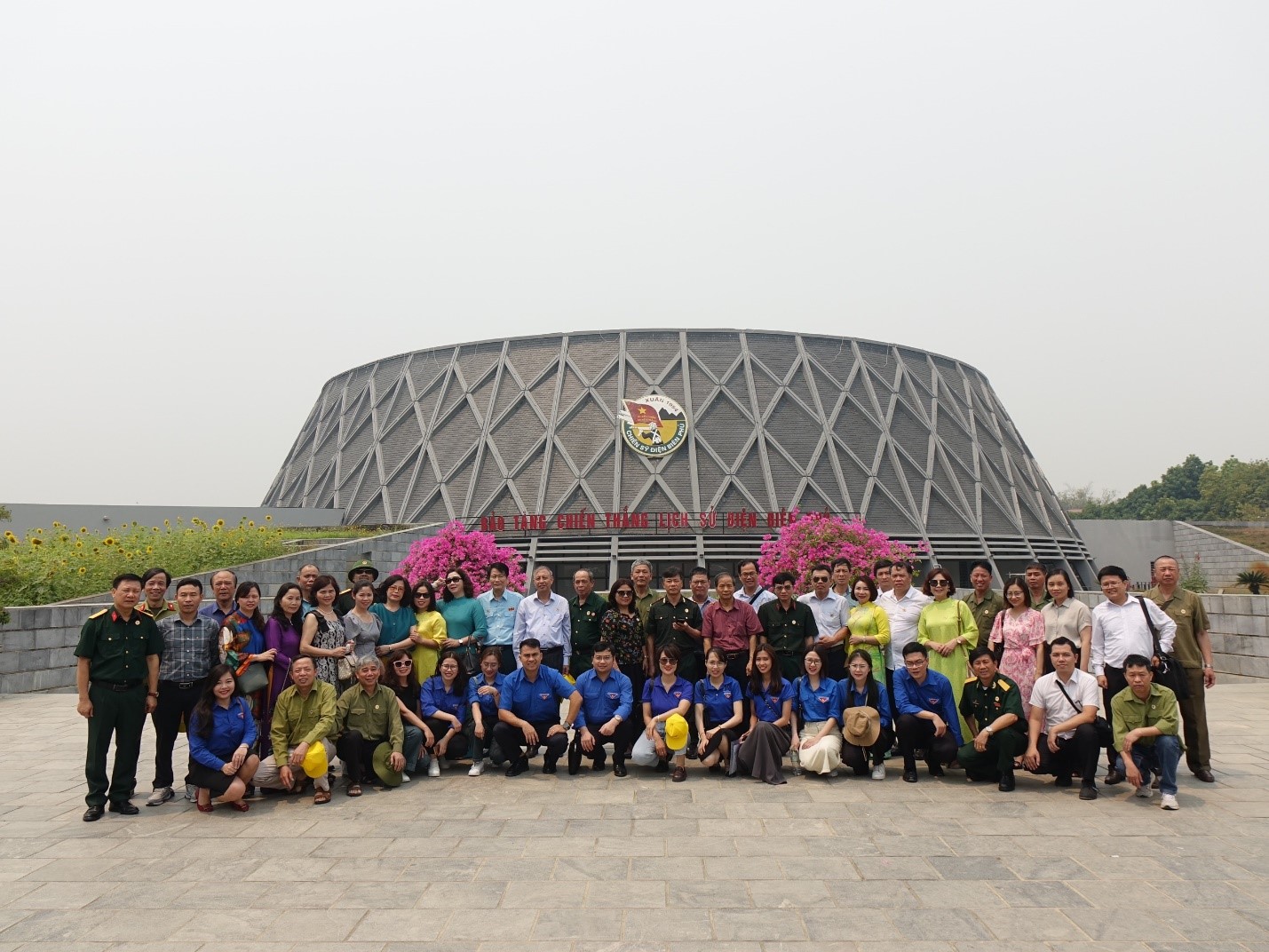 Hội Cựu chiến binh, Đoàn Thanh niên Viện Hàn lâm Khoa học xã hội Việt Nam đi thăm lại chiến trường xưa Điện Biên Phủ
Hội Cựu chiến binh, Đoàn Thanh niên Viện Hàn lâm Khoa học xã hội Việt Nam đi thăm lại chiến trường xưa Điện Biên Phủ
- Tổng mục lục Tạp chí 2023
-
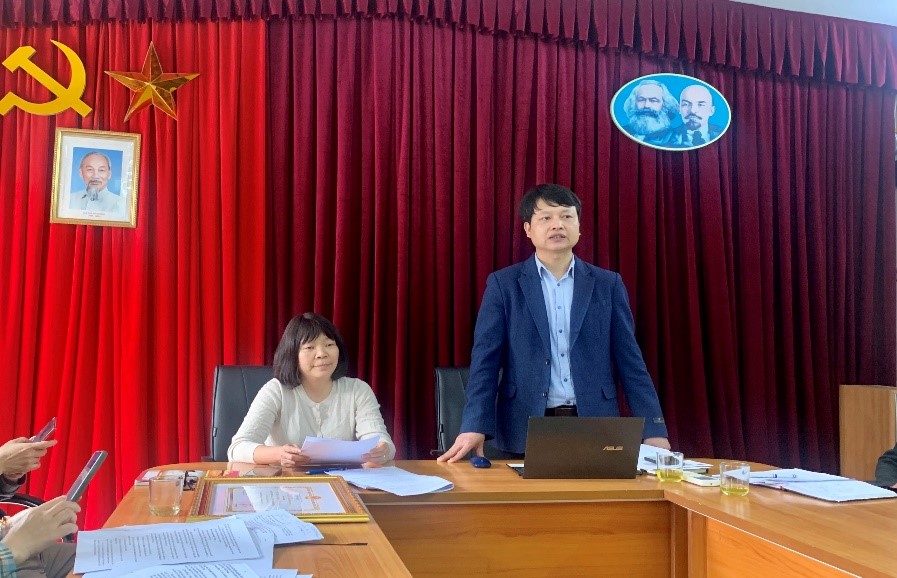 Viện nghiên cứu Gia đình và Giới phát động phong trào thi đua và ký Giao ước thi đua năm 2024
Viện nghiên cứu Gia đình và Giới phát động phong trào thi đua và ký Giao ước thi đua năm 2024
Liên kết web
Số lượt truy cập
41
5408198
Chi tiết tạp chíNo. 1 - 2019
On March 29th 2019 in Hanoi, a workshop to launch the report “Towards a Comprehensive National Policy for an Ageing Society in Vietnam” was held by the Vietnam National Committee for Ageing. Mrs. Pham Thi Hai Chuyen, President of the Vietnam Association of the Elderly, and Mrs. Astrid Bant, UNFPA Representative in Vietnam delivered the opening speech.
Mr. Rintaro Mori, Technical Advisor on Population Ageing and Sustainable Development, UNFPA Asia and Pacific Regional Office, presented the report "Adapting to Population Ageing: Life-Cycle Approach and International Experience". In his presentation, Mr. Rintaro Mori said that population ageing was happening rapidly in the Asia-Pacific region and then took the example of two countries, Australia and Japan, for policy issues to match the population ageing situation in those two countries. According to the presentation, lifecycle approach was the most efficient solution to population aging.
Representatives of the Department of Social Protection, Ministry of Labor, Invalids and Social Affairs, presented policy orientations on the revision of the Law on the Elderly and the National Action Program for the Elderly in the period 2021-2025. Accordingly, seven key points were proposed, including: 1) completion of favorable policies for the elderly to participate in work and promote their experience, in order to realize the United Nations’ message of "retired but did not take time off from work"; 2) endurance of uncourageous policies for enterprises, families and communities to participate in (short and long term) health care for the elderly; 3) completion of supportive policies and mechanisms for the elderly, organizations and individuals to promote the role of the elderly for the state and society; 4) accomplishment of social protection policies, in which the age of beneficiaries should be reduced to under 75 with priority to the elderly in mountainous and remote areas, islands and people of especially difficult circumstances. In addition, there is also a need to flexibly adjust the level of social support for the elderly of specific economic and social conditions in each specific period; 5) supplement of development policies for social work for the elderly, which took a focus on the role and responsibility of social work for the elderly with specific criteria and services; 6) renovation of administrative procedures with the application of information technology in solving social protection policies for the elderly, contributing to the implementation of e-Government; 7) fulfillment of the mechanisms for strengthening the responsibilities of state management agencies at all levels and the Elderly Association in the implementation of the elderly work.
In the last session of the workshop, Mr. Nguyen Van Tien, former Deputy Chairman of the National Assembly's Committee on Social Affairs, introduced the content of the report "Towards a Comprehensive National Policy for Population Ageing in Vietnam in 2020-2030, Vision to 2035". This policy report addressed population ageing in Vietnam and related issues such as the elderly’s finance, health and disability, societal and environmental care, abuse and violence, and responsibilities of stakeholders as a basis for analysis and recommendations on the need for a comprehensive national policy to response to the problem of population ageing. At the same time, the report also provided evidence to support the Government in the fulfillment of its set tasks.
Appointment of the Acting Editor-in-Chief of the Journal of Family and Gender Studies
On January 29, 2019, at the Institute for Family and Gender Studies in Hanoi, the Vietnam Academy of Social Sciences organized a ceremony to announce and appoint Assoc. Prof. Dr. Tran Thi Minh Thi – Director of the Institute for Family and Gender Studies, to concurrently acting as Editor-in-Chief of the Journal of Family and Gender Studies, under the Vietnam Academy of Social Sciences.
Attending the ceremony were Prof. Dr. Nguyen Quang Thuan, President of the Vietnam Academy of Social Sciences; Assoc. Prof. Dr. Pham Minh Phuc, Deputy Director of the Organization - Personnel Department of the Academy; and all cadres of the Institute.
On behalf of the leaders of the Vietnam Academy of Social Sciences, Prof. Dr. Nguyen Quang Thuan announced the decision on resigning from the position of Editor-in-Chief of the Journal of Family and Gender Studies of Prof. Dr. Nguyen Huu Minh, and gave flowers to congratulate, acknowledging Prof. Dr. Minh’s outstanding achievements and contributions for the stability and development of the Journal during the last term. The President highly appreciated Prof. Dr. Minh’s capacity, quality and responsibility in the creation of a professional, united and effective working environment and hoped that in the coming time, with his expertise and management experience, he would continuously make essential contributions to the Institute for Family and Gender Studies in general and the Journal of Family and Gender Studies in particular in terms of research, training and policy advocacy.
Subsequently, Prof. Dr. Nguyen Quang Thuan granted the Decision No. 72/QD-KHXH dated January 15, 2019 by the President of the Academy on the appointment of Assoc. Prof. Dr. Tran Thi Minh Thi, Director of the Institute for Family and Gender Studies, to hold the position of Acting Editor-in-Chief of the Journal of Family and Gender Studies. Prof. Dr. Nguyen Quang Thuan presented congratulatory flowers and delivered the task to the Acting Editor-in-Chief. The President firmly believed that, on the new position, Assoc. Prof. Dr. Tran Thi Minh Thi would inherit and promote the Institute’s traditions as well as predecessors’ leadership experience. He addressed that along with her profound expertise which were gained from her studies domestically and abroad, the Acting Editor-in-Chief would work with all cadres to develop the Journal sustainably, comprehensively and internationally.
Speaking at the ceremony, Acting Editor-in-Chief of the Journal of Family and Gender Studies - Assoc. Prof. Dr. Tran Thi Minh Thi would like to thank the Standing Party Committee, the leaders of the Vietnam Academy of Social Sciences for their trust and assignment. She also expressed her sincere thanks to the cadres in the Institute who introduced and trusted her in the position of Editor-in-Chief. She emphasized that she was deeply aware of the great honor and responsibility in the context of opportunities and challenges interwoven in research, training, cooperation and publishing in accordance with international standards. She pledged to work with the Institute for Family and Gender Studies and Journal to strengthen the linkage between academic research and practical review; uninterruptedly reinforce the human resources with high expertise and professional ethics; actively promote national and international cooperation. With her experience and capacity, she committed to inherit and promote the good tradition of the Institute and the predecessor generations; and be in full steadiness, solidarity, enthusiasm, pioneering, innovation to develop the Institute and the Journal together with all cadres, civil servants, and employees of the Institute.
Taxation in Viet Nam: from a Gender Lens
Abstract: Viet Nam has a strong record of commitment to gender equality, and has implemented legislation and gender mainstreaming practices to reduce gender inequalities between women and men in all aspects of life, including in economic status. Although women in Viet Nam have made progressively moved toward increased gender equality since the 1980s, however, global shifts in economic priorities and tax policies have produced increased income inequalities, and have reinforced or contributed to increased gender inequalities in relation to incomes and related areas. This discussion paper outlines Viet Nam’s commitments to gender equality in this context, and focuses on how they apply to and can affect the status of women in the area of tax laws and policies. Drawing on the growing literature documenting the many linkages between gender equality and taxation, this discussion paper examines the gender impact of tax laws and tax incentives in Viet Nam, including personal income taxes, corporate income taxes, and value added taxes.
Abstract: While Viet Nam has been successful in achieving economic growth, poverty reduction and gender equality, the country cannot avoid exposure to a variety of disasters due to climate change, as it is among the most prone regions to disasters in the world. This paper will show that climate change and its impacts are not gender neutral and nor are its policies and actions. Because of prevailing gender inequalities, women are likely to be more affected than men. Sensitivity to climate change varies and is particularly strong amongst poorer, rural women, including those from ethnic minorities, who tend to rely on natural resources and climate-sensitive livelihood activities. Due to their gender-defined roles in society and traditional patterns of marginalization, women are amongst those that are likely to carry the heaviest burdens from these changes and benefit less the policies and programmes that address these, though they play a crucial role in Viet Nam. Not only do they comprise almost half of its population, but they also play important roles at the household level, in the rural and urban economies and in society as a whole. The paper also shows that women should not be seen as ‘victims’. They are also crucial actors in climate change adaptation (CCA) and disaster risk reduction (DRR), and their needs and knowledge should be used to inform the design, implementation, and monitoring of climate change and CCA/DRR policies.
Older People’s Capacities and Intergenerational Mutual Support Provision in Vietnam
Abstract: This paper focuses on the mutual support provision between older people and their children. Intergenerational exchange is considered an empirical indicator of functional solidarity, a core constituent of intergenerational solidarity. Types of support in this analysis include financial support, housework, care support, and work assistance. Data from the Vietnam National Ageing Survey 2011 were used for analysis with a sample of 2,700 participants aged 60 and older. Results suggest that older people with more resources tend to involve in intergenerational mutual support provision relationships, particularly with regard to financial support. Additionally, age, marital status, living arrangement, number of children and the health condition of older parents significantly contribute to encouraging mutual support provision. Future research could focus on reciprocity models and the relationship between quality of intergenerational relationships and support exchange. Further, it could explore the outcomes of support exchanges, which results in older people’s wellbeing in advanced age.
Violence against Children and Youth in Viet Nam: The Linkage between Family, Peers and Schools
Abstract: Children and youth can experience violence in a variety of settings: in the family, among peers, in the community, in schools, and in society at large. So far, few studies in Viet Nam have attempted to analyze the link of child and youth violence between these different spheres. This paper attempts to examine the linkages between domestic violence against children and other types of child and youth violence that occur outside of the home, under the influence of risk and protective factors such as family, peers, and school. The following analysis is based on the socio-ecological framework.

